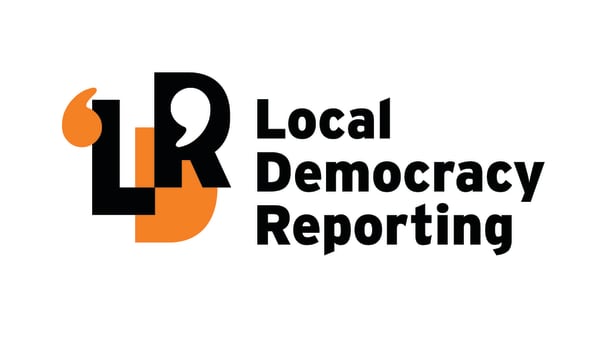Tokomaru Bay residents can be found at their beaches picking up rubbish washed ashore from their defunct landfill after rainfall events.
Rubbish, sediment and woody debris choke the Mangahauini River and a local says people have not been able to swim or fish there since 2021.
But the community could be closer to a quicker resolution to these environmental and health issues after the remediation of the contaminated Tokomaru Bay legacy landfill was included on list of projects submitted for fast track consent under the Government’s proposed Fast-Track Approvals Bill.
In July 2020, heavy rainfall events compromised the Tokomaru Bay landfill and exposed waste material.
Gisborne District Council constructed a limestone rock revetment as an emergency response, but it washed away during last year’s cyclones Hale and Gabrielle.
The Government last week released a list of 149 projects selected from 342 projects submitted for fast-track consent.
“The 149 projects chosen by Cabinet to be listed in the bill will be listed in schedule 2 of the bill, once the bill is reported back from the Environment Committee in mid-October,” Minister for Infrastructure Chris Bishop said in a statement.
“Once the bill is passed, they will be able to apply to the Environmental Protection Authority to have an expert panel assess the project and apply relevant conditions.”
Tairāwhiti has one project, submitted by the council, on the list - remediation of the Tokomaru Bay landfill.
Te Rimu Trust’s proposed Kahui Kupenga marine facility (between Te Araroa and Wharekahika/Hicks Bay) did not make the list.
Eastland Generation’s Waihi hydroelectric power scheme reconsenting project is on the list under the Hawke’s Bay region.
At an operations committee meeting in April, Gisborne district councillors approved a draft submission for fast-tracking infrastructure and development projects that support housing, roading and water storage consents.
Their submission also voiced local iwi consent priorities and concerns about the proposed fast-track legislation.
Council director of sustainable futures Joanna Noble said no other projects were submitted by the council as the Tokomaru Bay landfill remediation was the only project that strongly aligned with the fast track criteria and was sufficiently progressed enough to allow for an application.
“We expect other projects will qualify in the future,” she said.
Tokomaru Bay resident and Te Whanau a Ruataupare me Te Ao Tawarirangi Hapū representative Lillian Te Hau-Ward said the project was crucial for their area.
After rainfall, locals would go to the beach and pick up rubbish that had washed ashore from the landfill, she said. On four occasions, during civil defence emergencies, they had been forced to send people to the beach to collect rubbish.
“A lot of that rubbish is still coming in even now.”
The rubbish came straight down their awa and “river of significance” - the Mangahauini.
“Our children and parents, and even pakeke, would swim in there ... but they haven’t been able to since 2021.”
She doubted whether people would have caught eels in the river over the last three to five years because of increased sedimentation, woody debris and landfill rubbish.
“You would be lucky if there’s anything [alive] in there.
Te Hau-Ward said under the fast track consenting process, they would still be “ticking all the boxes” to meet Treaty of Waitangi requirements.
Noble told Local Democracy Reporting that significant stakeholder engagement with iwi, hapū and the community in relation to the project would continue.
In February this year, the council was granted nearly $5 million from the Ministry for the Environment to remediate the site by restoring and reversing the environmental damage, and returning it to its original flood plain state.
Under current consenting conditions the project was expected to take over two years. Work started midway through 2024 and physical work was expected to start over summer.
Noble said once the Fast-Track Approvals Bill had been enacted into law, the council would decide if it would save time and money, and whether to go through the usual or fast track consent processes.
Bishop said the Infrastructure Commission estimated the current consenting process cost a “staggering” $1.3 billion every year.
“Within a recent five-year period the time taken to get a resource consent has nearly doubled.”
Under fast-track, the consenting time for projects would vary depending on complexity, but in general, approval would go from years to months, he said.
East Coast MP Dana Kirkpatrick said consenting was taking up to eight years for a project that took only year to complete.
In relation to the Tokomaru Bay project, she said increased health risk and further erosion meant “time is of the essence”.
“Particularly with the way that river has changed over the site and continues to move ... we can’t be waiting years and years for environmental impact statements and God knows what.
“We just need to get it done,” she said, stressing the Government would still take into account environmental and iwi issues.
“We should also remember that all of these projects on the list still have to go through an assessment process.”
The Tokomaru Bay landfill started operating in 1967. By the late 1980s, it had used up to 60m of landfill space.
In 1996, a concrete refuse pit with leachate disposal lines was installed. By 1999 the site had been shut down because of expired resource consents, with the remaining waste relocated to the Paokahu landfill (in Gisborne) at the time, according to a council statement.
The Paokahu landfill stopped operating in 2002.










